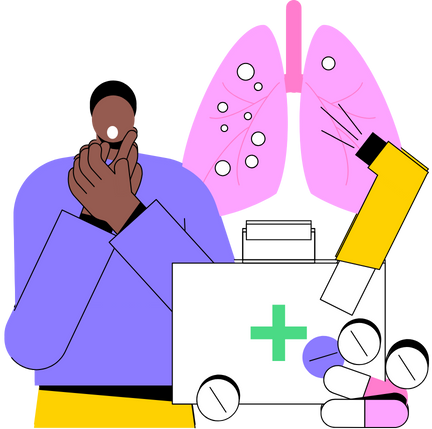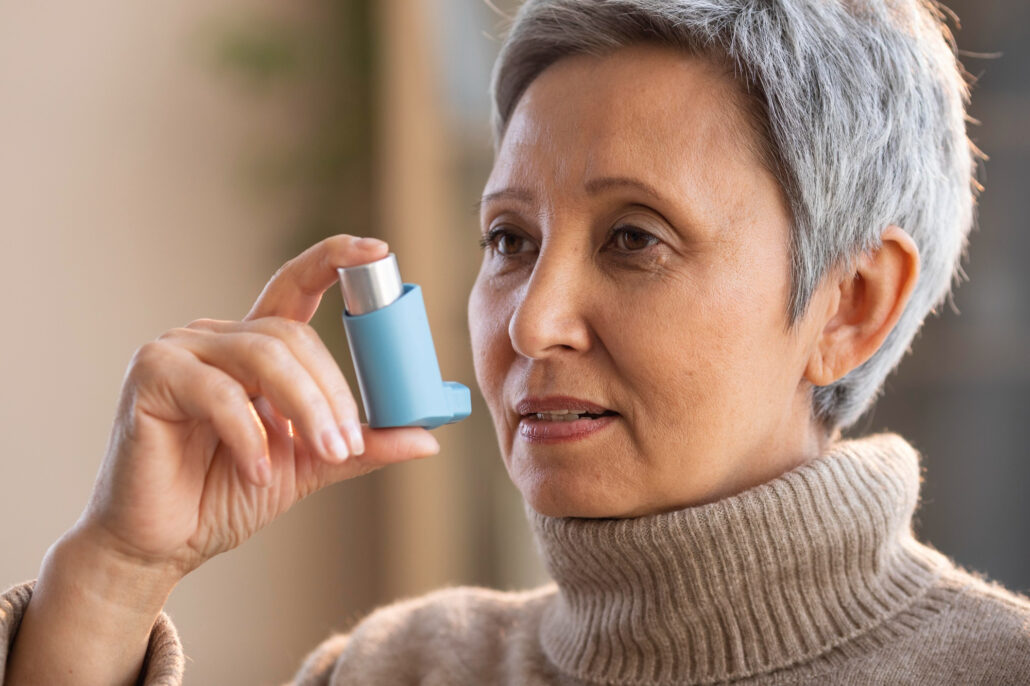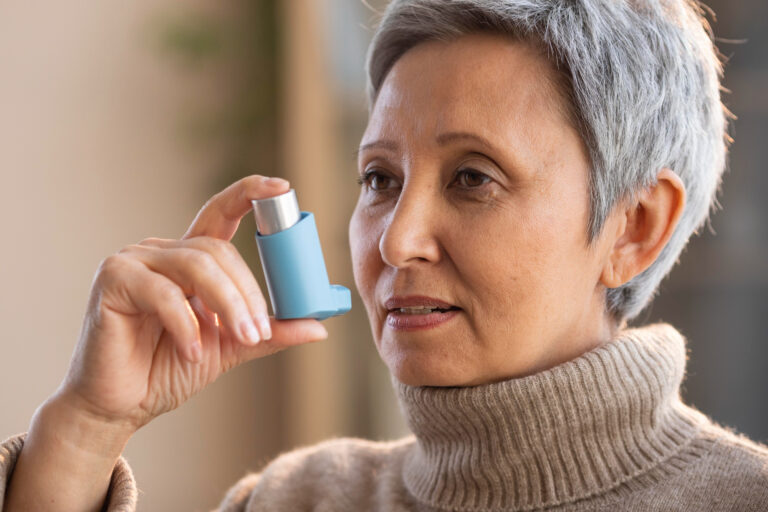Asthma Research Study
Researchers at the Icahn School of Medicine at Mount Sinai are studying a new treatment for mild to moderate asthma to help improve future treatment options. If you have asthma and use medication to manage it, you may be eligible to participate.

Fast Facts

Physician Diagnosed Mild-to-Moderate Asthma for ≥12 Months

18-80 Years Old

Compensation Provided

Conducted at Mount Sinai Hospital, New York, NY
Study Background
Researchers at the Icahn School of Medicine at Mount Sinai are conducting a study to better understand how a new treatment can help individuals with physician diagnosed mild-to-moderate asthma for ≥12 months. The goal is to evaluate the effectiveness and safety of Lunsekimig in improving asthma management.
Asthma is a chronic condition that affects the lungs, causing symptoms like wheezing, shortness of breath, and coughing. Many people with moderate to severe asthma struggle to control their symptoms with current treatments. This study aims to explore a new treatment, Lunsekimig, to understand its potential in improving asthma management. By assessing its efficacy and safety, the research may help identify better options for individuals whose asthma is not well controlled with existing medications. The findings could ultimately lead to improved treatment strategies and better quality of life for people with asthma.

Study Background
Researchers at the Icahn School of Medicine at Mount Sinai are conducting a study to better understand how a new treatment can help individuals with physician diagnosed mild-to-moderate asthma for ≥12 months. The goal is to evaluate the effectiveness and safety of Lunsekimig in improving asthma management.

Asthma is a chronic condition that affects the lungs, causing symptoms like wheezing, shortness of breath, and coughing. Many people with moderate to severe asthma struggle to control their symptoms with current treatments. This study aims to explore a new treatment, Lunsekimig, to understand its potential in improving asthma management. By assessing its efficacy and safety, the research may help identify better options for individuals whose asthma is not well controlled with existing medications. The findings could ultimately lead to improved treatment strategies and better quality of life for people with asthma.

Additional Information
This study is being conducted to evaluate the efficacy, safety, and tolerability of Lunsekimig, a potential new treatment for people with physician diagnosed mild-to-moderate asthma for ≥12 months. The primary goal is to determine whether Lunsekimig, administered via subcutaneous injection, can improve asthma control compared to a placebo. By examining the effects of Lunsekimig on asthma symptoms, emergency room visits, and the need for additional medications, the study aims to gather critical data that could help expand treatment options for individuals with asthma in the future. The findings from this study may provide valuable insights into developing more effective therapies to manage asthma and improve quality of life for patients.
You may qualify for the study if you meet the following criteria:
Inclusion Criteria:
- 18 to 80 years of age
- Physician-diagnosed mild-to-moderate asthma for ≥12 months
- Hospitalization or emergency medical care visit for worsening asthma, requiring systemic corticosteroids
Exclusion Criteria:
- Current smoker or former smoker with cessation within 6 months of screening or history of >10 pack-years.
- Active vaping of any products and/or marijuana smoking within 6 months of Screening
- Participants who have experienced an upper or lower respiratory tract infection within the 4 weeks
The study is being conducted at the Icahn School of Medicine at Mount Sinai, located at Mount Sinai Hospital, 10 East 102nd Street, 5th Floor, New York, NY 10029, USA. Participants are required to travel to this location for their study visits.
The AIRLYMPUS study lasts up to 56 weeks. Once enrolled, the study involves:
In-person visits:
- Screening period (up to 4 weeks with 1 visit) to confirm eligibility
- Treatment period (48 weeks with 14 visits) to administer the study drug or placebo and monitor progress
- Follow-up visit 4 weeks after completing the treatment period
From home:
- Regular monitoring of your asthma symptoms and treatment progress via questionnaires and assessments as part of the study.
Compensation:
If you agree to take part in this study, you will be paid for your time and effort.
There is no cost for you to participate in our research study.